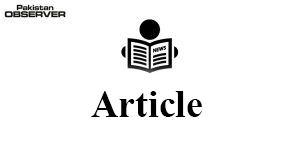Iqbal Khan
Azad Jammu and Kashmir (AJK) President Sardar Masood Khan has expressed disappointment over the recent statement of Karen Pierce, President of the United Nations Security Council (UNSC), in which she said the council would not be discussing the Kashmir situation this month because the matter was taken up 11 weeks ago. “When will the UNSC discuss Kashmir, if not now? Will the Council take up the matter when the Kashmiris are completely finished off? That would be a travesty of justice and a dereliction of obligations under the UN Charter,” he added.
There is too much anger in Kashmir against India and continued oppression will only add severity and ferocity to resistance against India’s August 05 rash act. Kashmiri people have been protesting peacefully against India for decades and will continue to do so. Demonstrations are a permanent feature in Kashmir. But with killings going on, the youth may become radicalised, that could lead to a cycle of violence.
After India’s illegal action of August 5, the situation in occupied Kashmir has deteriorated with every passing day. India’s formalization of bifurcation of the occupied territory a few days ago was New Delhi’s practical step to make Kashmir its colony and turn the Muslim majority territory into a Hindu-dominated region through ethnic cleansing of Muslims.
Indian government has deployed its heavily armed soldiers in the occupied valley in an attempt to deprive the innocent Kashmiri people of their basic rights. It is a clear violation of the United Nations resolutions and international laws.Brave people of Kashmir have been struggling for their right of self-determination for decades.
Under the UN Charter, it is the responsibility of the UNSC to protect the fundamental rights of Kashmiris and prevent genocide and ethnic cleansing at the hands of Indian occupation force. Hence, the UNSC needs to frequently convene sessions on the Kashmir issue until a practical and decisive solution is found.
People of Kashmir are eyeing upon world powers to take notice of Indian atrocities and pressurize India to reverse its decision of scraping special status of Jammu and Kashmir. Thousands of innocent people of Kashmir including women, children and the elderly have been killed by brutal Indian troops. Moreover, Indian forces have detained innocent young boys at unknown places without any charge under the black law of Public Safety Act. Ms Mushaal Mullick has said that Modi-led government’s brutal action “has brought life to standstill in the valley”. The people of Kashmir are “under continuous siege for the last three months”. She added that the “people of Kashmir will never compromise on Kashmir cause and we will resist till our last breath”.
The humanitarian crisis in India-annexed Kashmir is one of the worst in the world in recent years. Thousands of people, including young teenagers, have been arrested, women are sexually harassed. Houses are exposed to night raids and streets wear deserted looks. Shops and pharmacies more often than not run out of stocks. Doctors are inaccessible. There are nearly one million Indian soldiers and police in Kashmir that have been given impunity to act against an unarmed civil protestors. One could easily find a parallel of India’s August 05 action with Nazi-Germany motivated by a racist ideology. There have been gross violations of human rights in India occupied Kashmir with people tortured and killed.The crisis has human rights and humanitarian aspects.
Indian government, motivated by a Hindu fundamentalist nationalism based on a newfound perception of religious supremacy, has launched a campaign against Muslims and other minorities. Such a mind-set and toxic brew is not only a threat to Kashmir but to the whole region. India plans large scale displacement of Kashmiri Muslims and change Kashmir’s demographic profile.
EU keeps calling on India and Pakistan to solve the Kashmir issue through bilateral political dialogue and in agreement with the Kashmiri people. While there is a positive change in EU’s approach, it is speaking for the first time openly about the situation in Kashmir, its statements are still too cautious. EU needs to sternly condemn the Indian atrocities in Kashmir and demand that India reverses its August 05 action. EU has to come out with a clear policy and then take the matter to the UN. EU should stop pretending its impartiality; it ought to take the side of the victims and demonstrate leadership for resolving the Kashmir issue. To start with, it should impose trade and travel sanctions on India. EU should also apply Human Rights clauses in its trade relations with India
Pakistan is willing for a third party mediation and the EU, together with the US, could evolve a viable mechanism for such mediation. First challenge of international community is to convince India about the necessity of dialogue and diplomacy. For decades, India has blocked international diplomacy to solve the Kashmir conflict, this approach is not tenable and it needs to change. India should not be allowed to block international diplomacy. Situation in India-occupied Kashmir cannot return to normal without external meditation.
In his recent letter, Chairman of the All-Party Hurriyet Conference Syed Ali Geelani has thanked Prime Minister Imran Khan for his efforts to push for the Kashmiri cause before the global community. Writing from a state of helplessness and desperation he conveyed that it could be his last communication as “ill health and issues of old age may not allow” him to address again. We wish long life and good health to Syed Ali Geelani and remain optimistic that sacrifices of Kashmiri people would one day lead to resolution of Kashmir conflict through exercise of their right of self-determination.
—The writer is a freelance columnist based in Islamabad.









